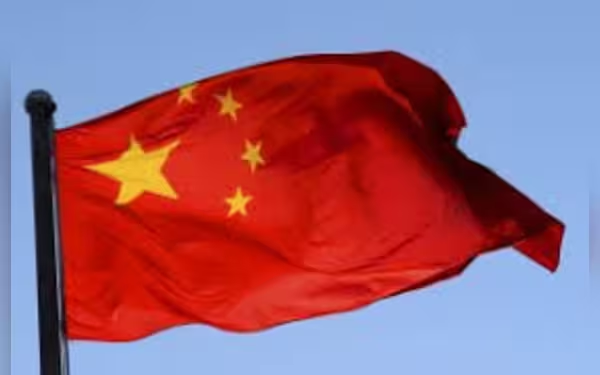Sunday, December 22, 2024 08:19 PM
China's Leadership in Globalization Amidst Economic Challenges
- China champions open trade and economic cooperation.
- US retreats from globalization, increasing protectionism.
- Belt and Road Initiative fosters global economic ties.
 Image Credits: thefrontierpost
Image Credits: thefrontierpostChina emerges as a leader in globalization, advocating for open trade amidst US protectionism and global economic challenges.
In recent years, the world has been grappling with the complex dynamics of globalization and deglobalization. As nations navigate through economic challenges, the role of major players like China has come into sharp focus. The ongoing debate surrounding open trade and economic globalization has intensified, especially in light of the shifting political landscape following the 2024 US presidential election. Emerging economies and developing countries are advocating for the benefits of free trade, emphasizing how it fuels global economic growth. Conversely, some developed nations are retreating into protectionist stances, citing the 'losses' incurred from globalization.
The global economy is currently facing unprecedented challenges, including geopolitical tensions, trade frictions, and fluctuations in financial markets. Many are left wondering whether global governance can still function effectively. The United States, in particular, has taken a significant step back from its previous role in promoting globalization. Since 2016, it has implemented numerous trade restrictions and withdrawn from key international agreements, leading to concerns about a fragmented global community.
UN Secretary-General Antonio Guterres has highlighted the importance of member states' commitment to the multilateral system, stating, 'The United Nations, and the multilateral system itself, is only as effective as Member States’ commitment to it.' This sentiment underscores the growing unease regarding the future of global cooperation.
In stark contrast, China has emerged as a steadfast supporter of globalization. President Xi Jinping's remarks at the 2017 World Economic Forum resonate with many: 'Pursuing protectionism is like locking oneself in a dark room. While wind and rain may be kept outside, that dark room will also block light and air.' This metaphor positions China as a champion of open trade, advocating for collaboration and mutual growth.
China's Belt and Road Initiative (BRI), launched in 2013, exemplifies its commitment to fostering economic cooperation across continents. By connecting Asia, Africa, and Europe, the BRI offers partner countries opportunities for infrastructure investment and economic development. Additionally, the Global Development Initiative (GDI), proposed by Xi in 2021, has garnered support from over 100 nations, further solidifying China's role in global economic governance.
The G20 has become a crucial platform for discussing global economic issues, with China playing an increasingly significant role. The 2016 G20 Hangzhou Summit marked a turning point, placing development issues at the forefront of global policy discussions. At the recent G20 Summit in Rio de Janeiro, China once again advocated for inclusive economic globalization, reinforcing its position as a leader in multilateralism.
International economists have noted the contrasting approaches of the United States and China. Pascal Lamy, former director-general of the World Trade Organization, remarked that 'China’s approach to globalization, despite its challenges, aligns more with the trends of economic interdependence that have shaped the 21st century.' This perspective highlights the potential for China to play a constructive role in global governance.
Ultimately, the path forward lies in embracing a more inclusive form of globalization that benefits all nations, rather than retreating into isolationism. As the world continues to navigate these turbulent waters, it is essential to recognize the importance of cooperation and collaboration in addressing global challenges. The future of global governance may depend on the willingness of nations to work together, fostering an environment where everyone can thrive.













